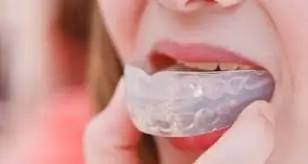What Is a Night Guard and Who Needs It?
A night guard is a removable dental appliance, custom-made to fit over your teeth. Worn during sleep, it acts as a cushion, absorbing the pressure from jaw clenching and teeth grinding. People suffering from temporomandibular joint disorders (TMJ), chronic jaw pain, or bruxism (involuntary grinding) are ideal candidates. By preventing direct tooth-to-tooth contact, a night guard protects enamel and reduces stress on the jaw joint read more.
How a Night Guard Provides TMJ Relief
Temporomandibular joint disorders manifest as jaw pain, stiffness, and limited mouth opening. A well-fitted night guard achieves TMJ relief by:
- Distributing Bite Forces Evenly: It balances the load across both jaws, easing the strain on the TMJ.
- Reducing Muscle Hyperactivity: By keeping the jaw in a relaxed position, it prevents chronic muscle contraction.
- Preventing Joint Irritation: The guard’s material prevents direct grinding on the joint surfaces, minimizing inflammation.

Preventing Bruxism with a Night Guard
Bruxism prevention hinges on blocking the destructive cycle of grinding and clenching. A night guard helps by:
- Creating a Protective Barrier: It prevents enamel wear, fractures, and chips caused by metal-to-metal contact.
- Dampening Grinding Noise: For couples or families, using a night guard can reduce the audible sound of grinding at night.
- Encouraging Proper Jaw Alignment: Guards can be designed to guide the jaw into a healthy resting position, discouraging harmful movements.
Types of Night Guards and Selecting the Right One
- Soft Guards: Made of flexible material, these are suitable for mild bruxism or occasional clenchers. They offer comfort but may wear faster.
- Hard Guards: Constructed from durable acrylic, ideal for moderate to severe grinding. They resist deformation and provide stable TMJ positioning.
- Dual-Arch Guards: Cover both upper and lower teeth, offering maximal protection for severe bruxism or complex TMJ issues.
- Boil-and-Bite Guards: Available over-the-counter; heated to fit your teeth. While more affordable, they lack the precision of custom devices.
Steps to Obtain a Custom Night Guard
- Dental Evaluation: Your dentist assesses your bite, TMJ health, and grinding severity.
- Impressions or Digital Scans: Accurate molds or 3D scans capture the exact shape of your teeth and jaw alignment.
- Laboratory Fabrication: A dental lab crafts the night guard according to your dentist’s specifications.
- Fitting and Adjustment: At the follow-up appointment, minor modifications ensure comfort, proper fit, and optimal protection.

Maintaining Your Night Guard for Longevity
Proper care extends the life of your night guard and maintains oral hygiene:
- Daily Cleaning: Rinse and brush the guard gently with non-abrasive toothpaste.
- Soaking Weekly: Use a denture or retainer cleaner to disinfect.
- Proper Storage: Keep it in a ventilated case away from heat or pets.
- Regular Check-Ups: Bring your guard to dental visits for inspection of wear and fit.
Potential Side Effects and How to Address Them
While night guards are generally safe, some users may experience:
- Initial Discomfort: Slight soreness or jaw fatigue can occur as you adapt. Wear it a few hours before bedtime to acclimate.
- Excessive Salivation or Dry Mouth: Drinking water before bed and using a well-fitted guard can mitigate these issues.
- Altered Bite Feel: If your bite feels off in the morning, return to your dentist for minor adjustments.
When to Replace Your Night Guard
A night guard typically lasts 1–3 years, depending on material and grinding intensity. Replace it when you notice:
- Visible Wear or Cracks: Indicators that protection is compromised.
- Changes in Fit: If it becomes loose or causes discomfort.
- Persistent Symptoms: Increased jaw pain or renewed enamel sensitivity.
Complementary Strategies for Bruxism Prevention
Using a night guard works best alongside lifestyle modifications:
- Stress Management: Techniques such as meditation, yoga, or counseling reduce the root triggers of bruxism.
- Sleep Hygiene: Maintain a consistent sleep schedule and a calm bedtime routine.
- Avoid Stimulants: Limit caffeine, nicotine, and alcohol, especially in the evening hours.

The Importance of Night Guards for Dental Health and Jaw Relief
Using a night guard is an effective solution for those suffering from TMJ issues or teeth grinding during sleep. In addition to protecting the teeth from wear and fractures, it helps alleviate pain and pressure on the joints and muscles. When used correctly, this device can improve sleep quality and relieve discomfort associated with jaw disorders. It is essential to have the night guard tailored to individual needs and to maintain proper care for its ongoing effectiveness. If you experience teeth grinding or TMJ pain, it’s best to consult with a dentist for proper guidance and ensure the best therapeutic outcome read more.
